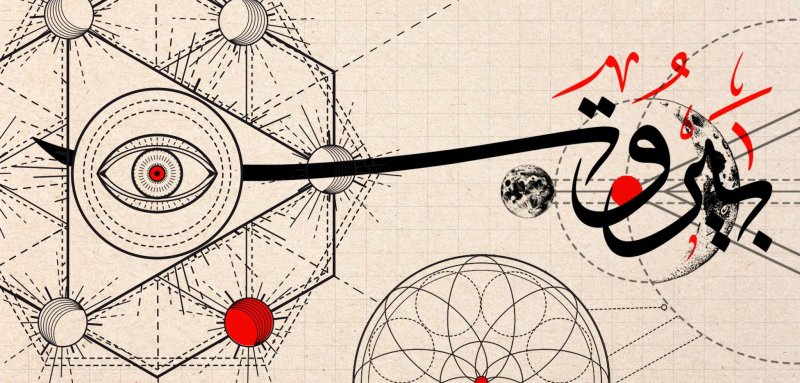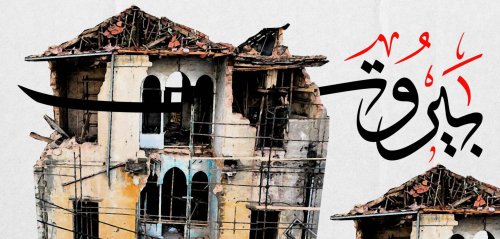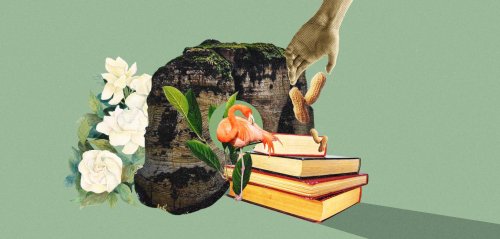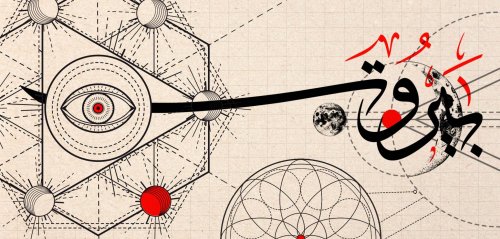This piece is part of Beirut Without Windows, a Raseef22 series, made possible through a grant from QARIB project led by CFI and funded by AFD.
Now more than ever, people are waiting to listen to the prophecies of fortunetellers. Like Vladimir and Estragon in Samuel Beckett’s play Waiting for Godot (1953), who wait for salvation but it never arrives, the people wait today, tomorrow, and the day after for the prophecies to become promises or prayers. Those that come true prove the miraculous nature of clairvoyants, and those that do not are pardoned or forgotten.
Before we begin by challenging the validity of fortunetellers in Lebanon, we need to understand the cultural influence they retain in a place that grows on uncertainty. Clairvoyants have become part of the culture, even though many Lebanese would be quick to dismiss them as con-artists and trivial entertainers. They dominate the public scene, especially on the evening before the new year, when they predict the country's future, and at times, go as far as predicting the future of the United States and Europe.
Clairvoyants have become part of the Lebanese culture. They dominate the public scene, especially on the evening before the new year, when they predict the country's future, and at times, go as far as predicting the future of the United States and Europe.
Religious leaders consider clairvoyance's occupation in opposition to religion as they adopt the Prophet's language, veiled with mystery. But it is known throughout different historical periods and places that during troubling times, people turn to fortunetellers even more than they turn to religious figures.
Soothsayers foretell the future and give answers to questions that can only be remedied through time. When they predict the future, they often use terms related to constellations to give a sense of urgency and knowledge, yet their language is obscure; it leaves the spectator both vulnerable and attracted to knowing his destiny. This profession is certainly not innovative nor exclusive to the Lebanese culture. Astrology dates back to around 2,400 years ago in Babylon, where they found records of those who documented and analyzed how the Sun, the Moon, and the planets change position over time. Great leaders are known to consult with clairvoyants before a battle or undertaking a journey.
They used to ask them to put a spell upon others who threaten their authority. In an article on soothsayers, Devin J. Stewart explains how important they were during pre-Islamic Arabia and how they received oracular statements from a spirit. Using ambiguous vocabulary, they recited prayers, blessings, curses and received remuneration for their services. Soothsayers were considered "false prophets" and were rejected by Islam.
Now more than ever, people are waiting to listen to fortunetellers. Like Vladimir and Estragon in Samuel Beckett’s play Waiting for Godot, who wait for salvation but it never arrives, the people wait today, tomorrow, and the day after for the prophecies to become promises or prayers
How come, then, modern soothsayers are still active and found necessary in a country like Lebanon, where almost half of the population is Muslim? Some argue that their performance preserves the sanity of people living in an unstable country. To know people are predicting the future is to know there is a future. It is not only the Lebanese who find comfort within the prophecies of fortunetellers.
In 1994, an article in the New York Times by Chris Hedges under the title "Danger Makes Algerians Turn to Soothsayers" discusses the 5,000 legally registered soothsayers' psychological influence on most Algerians. Instead of dealing with the stigma of visiting a psychologist, people find visiting clairvoyants to be therapeutic. The article also notes how the Prophet Muhammad forbade his followers from consulting soothsayers who said, "they lie even they tell the truth." It is true that insecurity searches for superstitions.
In Leo the African (1986), Amin Maalouf writes: "[…] man is so vulnerable in the face of Destiny that he cannot help himself being attracted to objects which are shrouded in mystery." Popular traditions, such as hosting clairvoyants and listening to their prophecies, developed when they began warning the people of frightful events. When the famous Lebanese clairvoyant predicted a prime minister's death, people wanted to believe that someone can prepare them for disturbing events. Hedges notes how educated people often seek soothsayers in secret.
In another article published in the New York Times in 2007, "Boom Market for Lebanon's Soothsayers," Hassan M. Fattah writes about these "political players," as he calls them. He notes their pride and competitive spirit. Most importantly, Fattah writes how some critics disapprove of clairvoyants who engage in politics as they cause anxiety or panic. Several articles online explore how it has become therapeutic for the Lebanese to watch fortunetellers predict the future in this stressful environment. They all insist on how it is reassuring to know the destiny of an unpredictable place. But, recently, their predictions have not been soothing the public. Their prophecies include more explosions, earthquakes, and war.
An online forum recently touched upon this matter, arguing that fortunetellers must cease to exist in this country as they take advantage of the fear that haunts the Lebanese. Some wonder how clairvoyants gained people's trust in the first place. They debate that they must be banned from appearing on television. One person went as far as to say that the clairvoyants are not predicting misfortunes but causing them. Then again, clairvoyants argue that they have a gift, and they feel an obligation to share their visions with the world.
Of course, science regards clairvoyance as the result of fraud, hallucinations, or coincidences and not as a paranormal power. The truth is that clairvoyance rests on chicanery. Nevertheless, the future they imagine consoles the trembling hearts of the Lebanese who are therefore reduced to believe that soothsayers possess superior knowledge from spirits.
In Lebanon's case, clairvoyants have embedded themselves as part of the culture. In return, the people have been actively consuming more naïve beliefs that lead to nowhere
The television medium invites clairvoyants to perform for the public and reveal information based on a whim. In Lebanon's case, they have embedded themselves as part of the culture, imposing their deceitfulness onto the people. In return, the people have been actively consuming more naive beliefs that lead to nowhere.
Raseef22 is a not for profit entity. Our focus is on quality journalism. Every contribution to the NasRaseef membership goes directly towards journalism production. We stand independent, not accepting corporate sponsorships, sponsored content or political funding.
Support our mission to keep Raseef22 available to all readers by clicking here!
Interested in writing with us? Check our pitch process here!









